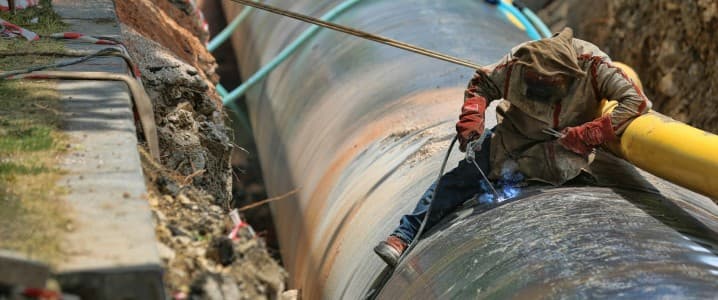Iraq plans to build an oil pipeline to Oman as OPEC’s second-largest producer seeks to boost exports and diversify export routes for its crude out of the Middle East.
Iraq and Oman have reached a preliminary agreement for a pipeline from Iraq to the port of Duqm on the Gulf of Oman, Ali Nizar, director general of the Iraqi state oil marketing company SOMO, told Shafaq News on Thursday.
The project has yet to identify the route of the future Iraq-Oman pipeline. The two countries are discussing whether to have an offshore pipeline in the Gulf or an onshore pipeline, which will require transit agreements with the countries along the pipeline’s route, Nizar told Shafaq News.
Still, the first phase of the project has been agreed to—it is to build storage tanks with total capacity of 10 million barrels at the port of Duqm in Oman. This capacity could be increased if necessary.
Until an actual oil pipeline is built and in-service, Iraq plans to ship crude by tankers to the storage sites, SOMO’s head told Shafaq News.
Iraq and Oman have just reaffirmed their economic and energy cooperation during last week’s official two-day visit of Iraq’s Prime Minister Mohammed Shia’ Al Sudani to the Sultanate of Oman.
During the visit, Al Sudani had an audience with Oman’s ruler, Sultan Haitham bin Tarik, and signed a dozen of bilateral agreements, including on energy cooperation.
Currently, most of Iraq’s crude is being exported from the southern port of Basra on the Persian Gulf. The exports from the northern fields in the semi-autonomous region of Kurdistan remain shut in, two and a half years after a dispute over who has the authority over exports halted these via a pipeline to the Turkish port of Ceyhan on the Mediterranean.
Earlier this week, SOMO’s Nizar told Bloomberg that the state oil marketing firm is in discussions with Exxon for potential crude storage sites close to demand markets in Asia, the United States, and Europe.
For Iraq, export diversification and storage outside the Middle East would be aligned with its plan to raise its oil production capacity to above 6 million barrels per day (bpd) by 2029, up from about 4.5 million bpd now.
By Michael Kern for Oilprice.com
More Top Reads From Oilprice.com

